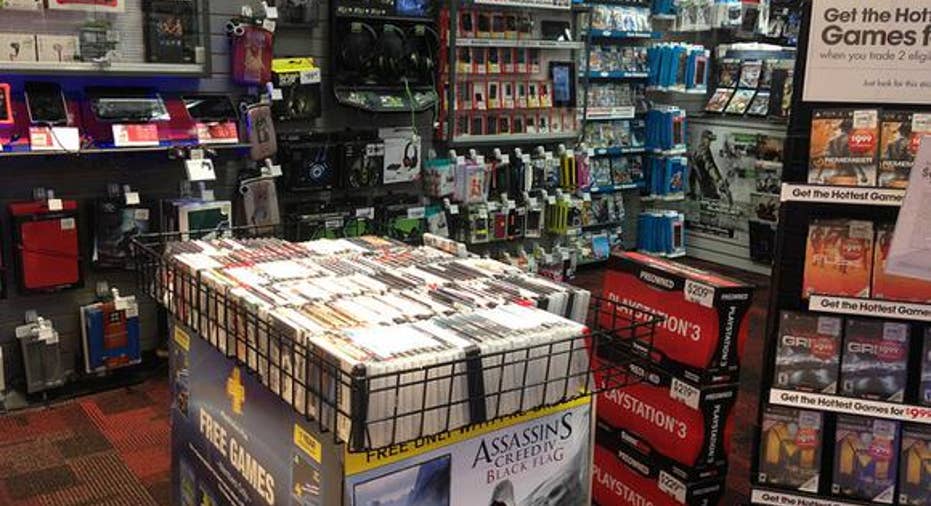GameStop Loses the S&P 500 Game

GameStopis doing everything that it can to stave off obsolescence, but it's going to have to do it with fewer institutional investors on board. S&P Dow Jones Indices announced a few changes to its market gauges after Tuesday's market close, but the biggest move involved Global Payments replacing GameStop in the S&P 500.
The video game retailer and the provider of payment solutions have been passing ships lately. Global Payments stock has seen its stock soar 54% over the past year, while GameStop stock has taken an 18% retreat. Backpedalling is never a good thing, especially when you're one of the smaller companies in the S&P 500. However, the real issue forcing the switch is that Global Payments is about to close on an acquisition that makes it too big to stay in the S&P MidCap 400.
Global Payments is already commanding a nearly $10 billion market cap, and that will grow to roughly $14 billion when it completes its purchase of Heartland Payment Systems . The deal is expected to close on Friday, and S&P 500 Dow Jones Indices is waiting for that to happen before making the move. GameStop with its $3.4 billion market cap can't put up much of an argument.
GameStop wasn't a lock to be the one to go in making room for the Heartland Payment Systems-fortified Global Payments. There are actually five other stocks in the S&P 500 with slightly smaller market caps than GameStop. However, GameStop's challenging model -- selling new and used video games and gear in a world migrating to digital delivery -- makes it a reasonable selection to be sent packing.
It's worth pointing out that GameStop's penchant for stock buybacks probably hurt here. The retailer has tried to make the most of its situation by using its healthy cash flows to aggressively repurchase its shares. This has helped prop up both the stock and earnings on a per-share basis, but ultimately it eats at its market cap.
GameStop isn't giving up. It has expanded into everything from collectibles to smartphone retail to diversify its business, and earlier this week it formed an indie publishing label to gain some skin in the game. It's doing a lot of smart things, and its chunky4.6%yield helped contribute a trickle of income to index fund investors. However, it needed the S&P 500 more than the S&P 500 needed GameStop.
Index funds tracking the iconic S&P 500 will now have to unload GameStop stock, and that could pressure the shares in the next few days. This isn't how GameStop wanted things to play out, but sometimes you just don't win.
The article GameStop Loses the S&P 500 Game originally appeared on Fool.com.
Rick Munarriz has no position in any stocks mentioned. The Motley Fool has the following options: short July 2016 $28 puts on GameStop. The Motley Fool recommends Heartland Payment Systems. Try any of our Foolish newsletter services free for 30 days. We Fools may not all hold the same opinions, but we all believe that considering a diverse range of insights makes us better investors. The Motley Fool has a disclosure policy.
Copyright 1995 - 2016 The Motley Fool, LLC. All rights reserved. The Motley Fool has a disclosure policy.



















